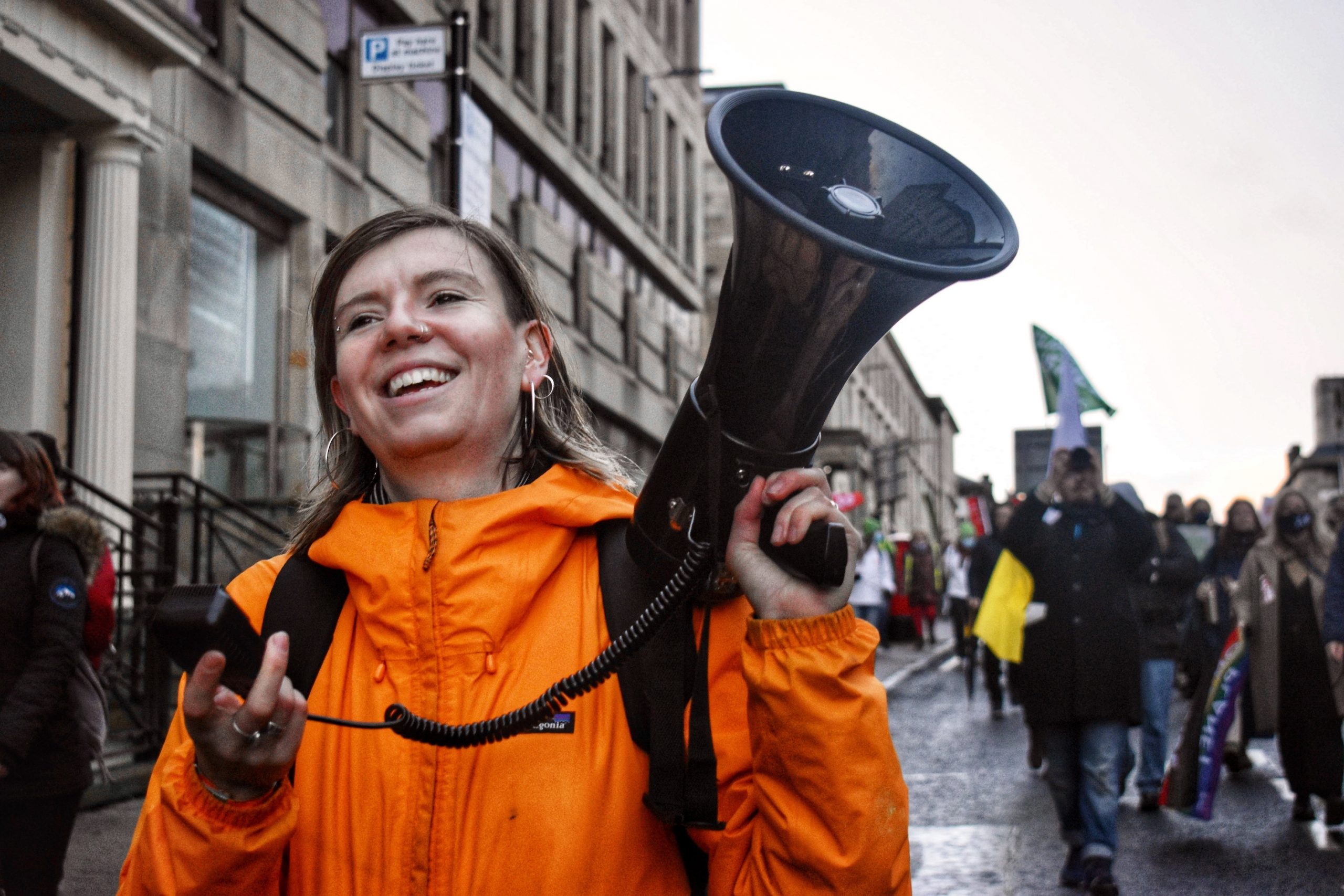
Transport statistics show road blocks to clean air and healthy places
Transport Scotland today has released new statistics which show that the bus sector is in crisis, and the car continues to be king on our roads.
Key points (all stats are for 2015):
Kilometres driven: kilometres driven in cars has increased by 3.2% over the last five years
Buses: The number of bus journeys has dropped by 5% in the last 5 years, declining almost 2% over the last year.
Cars: 66% of journeys to work were made by car, despite 30% of households not having access to a car.
Electric Vehicles: 1.4% of cars are pure electric vehicles, with a further 3.4% hybrid electric.
Walking, Cycling, and Public Transport: both cycling and train travel showed strong increases over the last five years. 31% of journeys to work were made by active travel or public transport, the same as in 2004. Just 2.2% of journeys to work were made by bike.
Congestions: 12.3% journeys were delayed by congestion
Commenting on the statistics, Emilia Hanna, Air Pollution Campaigner for Friends of the Earth Scotland said:
“Year after year cars increasingly dominate our transport choices, causing deadly air pollution, climate change emissions, levels of congestion that are choking our urban centres, and forcing the significant chunk of society that does not have access to a car into massive disadvantage.
“Three quarters of public transport journeys are by bus but the bus sector in Scotland is in dire straits, with only Edinburgh bucking the trend of decline. Rural services are being cut, urban services are often confused and don’t link up well as a network, and fares continue to increase at the expense of those who depend on the bus. Buses are a big part of the solution to air pollution and the Scottish Government urgently needs to reform how buses are regulated to make it easier for local authorities to operate functioning bus networks which work in the public interest rather than try to join up piecemeal services.
“The European Commission is on the brink of taking legal action against the UK for continued illegal air pollution in cities across the country including Glasgow, and these figures show that cars are the main source of the problem, but the Scottish Government needs to move much more quickly on tackling this public health crisis.
“The Government has promised a Low Emission Zone by 2018 in one city, but we need much, much more. We need less reliance on cars, if we are to have create cleaner air, less congestion and a fairer transport system. The Scottish Government and local councils must make it easier for more of us to walk, cycle, and use public transport. The Scottish Government and local councils must invest at least 10% of transport budgets into walking and cycling.
“The Scottish Government’s aim is only for 40% of new car sales to be ultra low emissions by 2032, despite advice from their official advisors to aim for 65% and much higher targets in other countries. Switching to electric vehicles is important this won't help those who already can't afford a car and completely misses the health benefits of getting far more people walking and cycling. Swapping all the petrol and diesel vehicles for electric ones will do nothing to tackle congestion.”
Notes to Editors
1. The Transport Statistics can be viewed at http://www.transport.gov.scot/statistics/scottish-transport-statistics-a…
2. It was recently estimated that congestion costs Scottish car owners £2.4 Billion through extra fuel for each driver, lost productivity and the extra costs to businesses. http://www.heraldscotland.com/news/15103472.Traffic_congestion_in_Scotla…
3. SNP promised to implement a Low Emission Zone if they are the largest party in Glasgow Council after the May elections. http://www.eveningtimes.co.uk/news/15049260.Glasgow_could_be_first_low_e…
4. Health impacts of air pollution:
– Friends of the Earth Scotland estimate that 2500 people die early each year from air pollution in Scotland alone: http://www.foe-scotland.org.uk/RCP-Report
– Air pollution, at levels seen on Scottish streets, has been linked with :
– Respiratory illness including asthma and COPD
– Heart attacks and strokes
– Low birthweight and delayed development in babies whose mothers have been exposed
– Poor lung development in children
– Dementia
– Children, the elderly, people with pre-existing health conditions, and sick are disproportionately affected by air pollution.
– (for more, see the Royal College of Physicians’ 2016 report, “Every Breath we Take: The lifelong impact of air pollution”: https://www.rcplondon.ac.uk/projects/outputs/every-breath-we-take-lifelo…)
5. The European Commission issued a final warning against the UK for breaches of air quality legal limits in 16 areas including Glasgow on 15 February 2017. http://www.bbc.co.uk/news/uk-politics-38980510
6. There have already been two air pollution episodes in Scotland this year, that is, days on which World Health Organisation safety standards for pollution have been broken: http://www.foe-scotland.org.uk/air-pollution-episode-feb17
7. Friends of the Earth Scotland revealed Scotland’s most polluted streets on 15th January 2017. They also disclosed that there are now 38 pollution zones across the country. http://www.foe-scotland.org.uk/most-polluted-streets
8. Friends of the Earth Scotland is
Scotland's leading environmental campaigning organisation
An independent Scottish charity with a network of thousands of supporters and active local groups across Scotland
Part of the largest grassroots environmental network in the world, uniting over 2 million supporters, 75 national member groups, and some 5,000 local activist groups.
